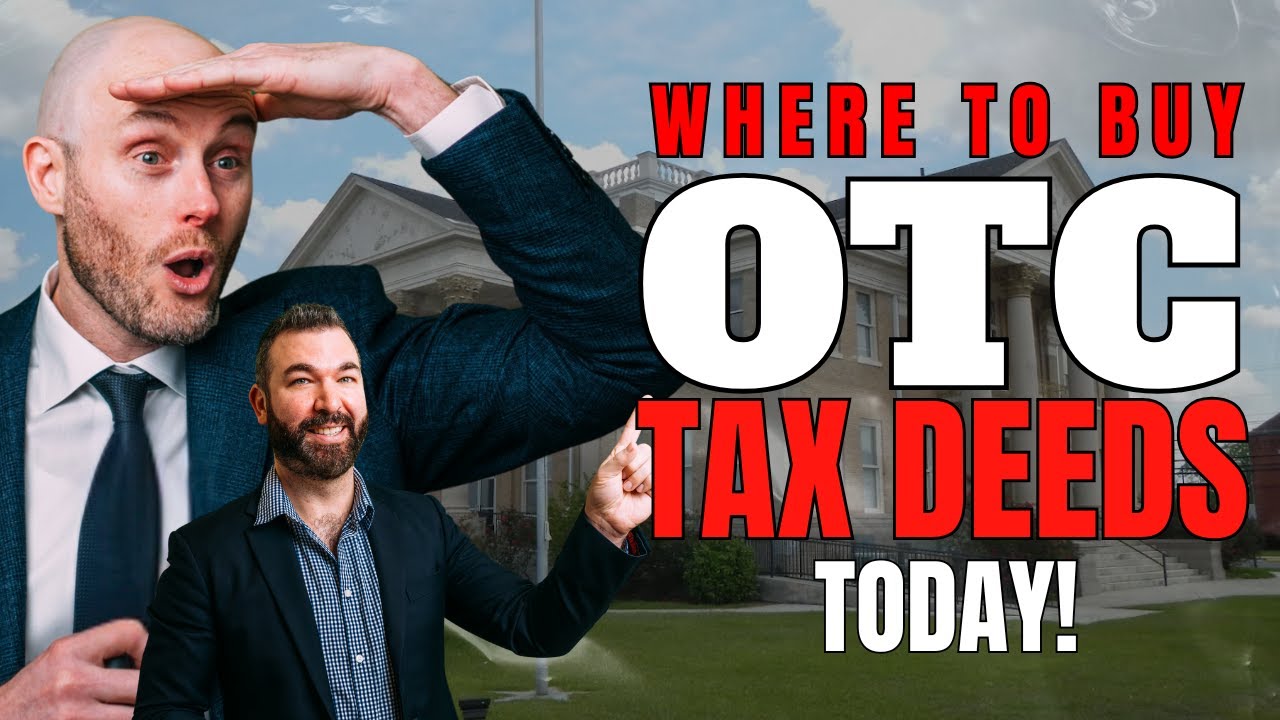Last Updated on October 23, 2025
Table of contents
How to Find Over-the-Counter Tax Deeds
Many people dream of buying real estate at a discount. Over‑the‑counter tax deeds make it possible. When a county auctions a property and nobody bids, the parcel often goes onto an “over‑the‑counter” list. You can buy it by paying the back taxes and fees, no auction required.
What Are Over-the-Counter Tax Deeds?
Over‑the‑counter tax deeds (sometimes called county‑held or surplus properties) are unsold parcels from tax deed auctions. Instead of being re‑auctioned, the county sells them directly on a first‑come basis for the unpaid taxes plus interest and fees. There is no bidding war. Because unsold properties often have issues, they may be landlocked, flood‑prone or subject to code violations, careful research is essential.
Why Invest in Over-the-Counter Tax Deeds?
- No competition: You buy at a set price instead of bidding against other investors.
- Low cost: Many deals cost only a few hundred dollars.
- Quick access: Counties can send you lists instantly, and you can purchase as soon as you decide.
- Variety: Lists include land, lots, mobile homes and sometimes houses.
How to Find Over-the-Counter Tax Deeds (Step by Step)
| Step | What to Do | Why it Matters |
|---|---|---|
| 1. Choose a state | Focus on tax deed states where counties publish lists. We recommend Minnesota and West Virginia. | Each state has its own rules and redemption periods. |
| 2. Locate the Over-the-Counter Tax Deeds list | Use the Tax Lien School “Knowledge Vault” or similar directories to identify counties. Call the county tax collector or treasurer and ask about Over-the-Counter Tax Deeds. | Some counties post lists online; others email them to you. |
| 3. Review and filter | County lists usually show parcel numbers, size, assessed values and the amount owed. Highlight promising properties and avoid parcels that are tiny, landlocked or otherwise undesirable. | Good properties disappear quickly. Start small and simple. |
| 4. Do your homework | Check access, zoning and possible issues using county GIS maps and online imagery. Contact the clerk or a local attorney to ask about code violations, environmental problems and surviving liens. | These properties didn’t sell for a reason. Verify there are no hidden costs. |
| 5. Pay and record | Follow the county’s payment instructions (usually certified funds). Once your payment is accepted, record the deed and decide whether to sell, hold or improve the property. | Recording finalises ownership and lets you plan your exit strategy. |
Where to Start Buying Over-the-Counter Tax Deeds
Minnesota is a “treasure chest” because it has 87 counties and many small towns with over‑the‑counter tax deeds. Mille Lacs County notes that unsold tax‑forfeited property may be sold over the counter on a first‑come basis. West Virginia is another good option; thousands of parcels from recent years are ready for foreclosure, and tax liens there have an 18‑month redemption period. Other states, such as Arkansas and Kansas, also have county‑held lists; call counties directly if you cannot find them online. Dustin also notes that Philadelphia runs sheriff’s sales through Bid4Assets; although they are auctions, they illustrate how big‑city tax sales work.
Tips for Success
- Start small: Buy one or two low‑priced properties to learn the process. Over-the-Counter Tax Deeds are ideal if you have limited capital.
- Call the county: Many lists are not online. Counties may charge a small fee for a list; the harder it is to get, the less competition.
- Know the difference: A tax lien is a claim on property; you earn interest until redemption. A tax deed gives you ownership once any redemption period expires.
- Act quickly but wisely: Good properties sell fast. When you find a promising parcel, verify details and proceed. Properties that linger on the list usually have serious issues.
FAQ
Yes. Most states allow out‑of‑state buyers, and some counties even allow foreign investors through a U.S. LLC. Check local rules.
Property taxes are senior to most liens, but mortgages, municipal assessments and homeowner association dues may survive. Always ask the county clerk or a local attorney.
If the deed has no redemption period, you own it as soon as the county records it. Some states require a redemption period (West Virginia’s is 18 months) before you can take possession.
Many over‑the‑counter properties cost under $1,000, but you should budget for additional costs such as repairs or legal work.
Final Thoughts
Over‑the‑counter tax deeds let beginners buy property without bidding wars. By choosing the right counties, calling for lists and doing careful research, you can acquire land, lots or homes at a fraction of their value. Start small, stay organized and be patient. With the right approach, Over‑the‑Counter Tax Deeds could be your first step into real estate investing.






